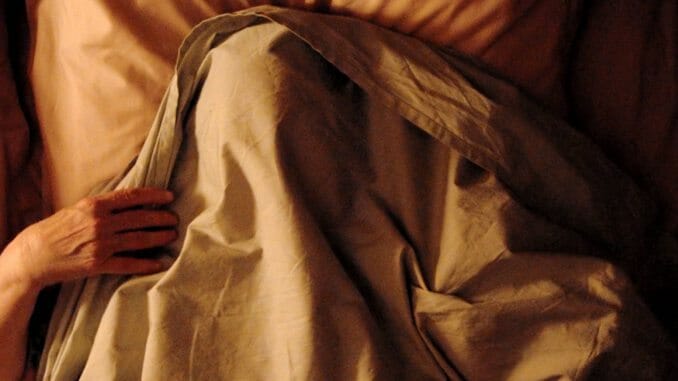Vortex is an Absorbing, Despairing Portrait of Aging

This review originally ran as part of Paste’s NYFF 2021 coverage.
In 2020, Gaspar Noé had a brush with death. The provocative French director of Climax and Enter the Void suffered a brain hemorrhage not long before the entire world went into pandemic-induced lockdown that March. When Noé emerged from the hospital to a planet in shambles, he nonetheless felt like he had been given a second chance at life. What arose from this trauma is what has been described as the director’s most personal—and even accessible—film: A largely improvised, 10-page outline that patiently details the complementary experiences of two declining adults in their twilight years. This is intensified not only by Noé’s recent dance with death, but by his own familial ties to losing one’s mind due to age. A title card at the beginning of Vortex reads “To all those whose brains will decompose before their hearts.”
It’s a warm sentiment for a decidedly bleak endeavor, but one in which the austerity and downward spiral of all characters involved makes Noé’s film feel like less than a worthwhile affair. Vortex is a measured, formally experimental and nearly two-and-a-half hour portrait of a couple in their final days, filmed entirely in a split-screen diptych and starring two industry veterans. Italian giallo director Dario Argento plays a man known only to us as “The Father,” and French actress Françoise Lebrun (best known for her role as Veronika in 1973’s acclaimed and divisive The Mother and the Whore) portrays “The Mother”—evoking more than one similarity to last year’s Oscar-winning Anthony Hopkins drama, The Father.
But in Vortex, the Father is a man whose mind remains sound and sharp into his late age. He works on the outline for his upcoming book on film and dreams, entitled “Psyche,” dabbles in an illicit tryst with another woman (an aspect of the character entirely of Argento’s making), and tends both to his deteriorating wife and his deteriorating heart. Initially, the once-happy couple is filmed relaxing on the patio of their expansive French apartment, a cavernous space filled nearly room to room, ceiling to floor, with books, film posters and works of art. They toast to life—that which is a “dream within a dream”—and are afterwards filmed climbing into bed together. But when they awake, the screen has become severed in two. The split-screen is utilized for the rest of the film to emphasize the opposing, yet overlapping deteriorations of both the Mother and the Father, each side of the screen concurrently following the two of them.
The Father’s heart condition is paralleled by the Mother’s gradually degrading case of Alzheimer’s, robbing her of her memory and her agency as a formerly prosperous psychologist. Lebrun brilliantly embodies the frail, frightened woman becoming a prisoner to her own mind; her accidents, which may elicit laughs under different circumstances, unable to be perceived as anything but acutely horrific. It is terrifying to think of ourselves befalling such a state one day and to feel so close to it—so terrifyingly personified in Lebrun’s stumbling, stammering Mother—that Vortex could be seen as just a much a horror film as Noé’s other work. It is equally chilling to consider having to watch someone we love wither away in real time, into a ghost of their former, vibrant self. In this challenging role, the legendary Suspiria director gives an impressive turn in a rare acting appearance—and his first lead acting part whatsoever.
-

-

-

-

-

-

-

-

-

-

-

-

-

-

-

-

-

-

-

-

-

-

-

-

-

-

-

-

-

-

-

-

-

-

-

-

-

-

-

-








































